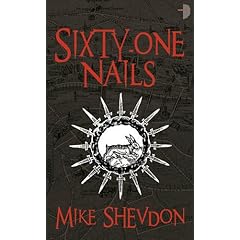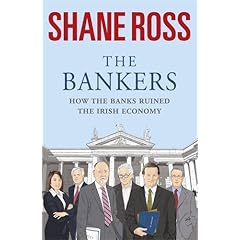When I was a student in Cork, friends of mine lived in a grotty old house in Sunday's Well Cork. Just around the corner was Annie Mac's, a traditional old pub. Well, in 2oo8,
Annie's Gastropub replaced the old Annie's. Thing is, I wasn't living in Cork anymore, so I didn't get to see this transformation firsthand.
Well, on a recent visit to Cork, friends told us about Annie's, so we decided to visit for Sunday lunch. It turns out that Chef Zico Ali is an old hand at the gastropub game, having worked at
The Lord Palmerston, a leading early London gastropub.
Upon entering we were greeted by a large blackboard featuring the many varied offerings of the day. I wondered how a small pub on the wrong side of the Lee could manage to offer so much choice to diners. The interior is a little chilly, having been painted all creamy white, but some sunshine managed to struggle in. Having decided, we took our seats in the winter sunshine and ordered.
While waiting, the waitress delivered some delicious homemade bread with olive oil and balsamic vinegar for dipping. With excellent oil and bread, we appeared to be off to a good start. The spicy sweet potato soup (E4.95) turned out to be a little more vegetable-y and brothy than I would have liked. I know sweet potatoes can make a beautiful, smooth soup with a sweet flavour. This however, was not that. My starter of haloumi, hummous, babaganoush and warm pittas (E9) turned out to be pretty good with a deliciously smoky babaganoush and rich hummous. I couldn't help however but unfavourably compare the price tag for 4 small dollops and half a pitta with the price for a full-on Lebanese lunch in the Cedar Tree, Dublin.
With our starters cleared, we returned to the Sunday papers while we waited for the mains. About half a dozen local men were seated at the bar, enjoying their post-mass, pre-lunch Sunday pint while discussing sport and other important local stuff. It was clear that these lads were impervious to the gastropub tag. They were continuing to visit their local, regardless of the changes around them.
My main of belly pork with winter vegetables and apple sauce (E20) turned out to be just too sweet. The pork was beautifully cooked, two nice squares falling apart at the touch of the fork. But there was a general lack of salt in the dish, both on the meat and the accompanying piece of crackling. A sweet gravy, combined with the apple sauce overpowered all the other flavours on the plate. The Hereford rib eye steak (E24) was superbly well-aged with a dry texture that wasn't dry! It was well-cooked and rested and came served with potato wedges and aioli.
Overall, I just wasn't impressed by Annie's. The ingredients used are clearly of good quality but the overall effect was of trying too hard, and charging too much. Gastropub doesn't mean a licence to charge large amounts for Sunday lunch. All through the meal, I couldn't help but think of the likes of
Oliver 's Eatery in Terenure were you can enjoy good pub food at great prices. It's always been a Cork thing to charge too much - but I don't believe that restaurants in Cork do any less business than restaurants in Dublin.
Two espressos bought the bill to E62! For lunch! Not on lads.






